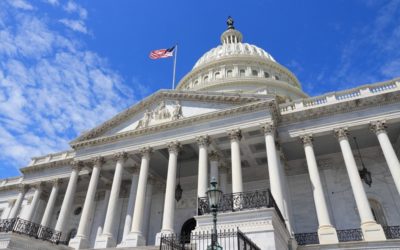The SECURE Act 2.0, was signed into law on December 29, 2022. The legislation calls for several changes, including an increase in the RMD age, distributions for federally declared disasters, early distributions for terminal illnesses, and changes to catch-up contribution rules. We’ve put together a summary of the key details below.
The SECURE Act 2.0: What You Need to Know
- Required Minimum Distribution (RMD) Changes – The original SECURE Act in 2019 moved the RMD age from 70-1/2 to 72. Beginning on Jan 1, 2023, RMDs apply to age 73 instead of age 72. In 2033, the RMD age will increase again to 75.
The penalty associated with failing to take an RMD decreases from 50% to 25%. Additionally, if the RMD is taken by the second year after the year it was due, the penalty is lowered to 10%. For example, an RMD is required in 2023 and is not satisfied, withdrawing enough by December 31, 2025, will decrease the penalty to 10%. - Federally Declared Disasters – Working retroactively, individuals affected by a federally declared disaster area can take up to $22,000 in distributions from employer retirement plans or IRAs, without being subject to a 10% early withdrawal tax. The amount withdrawn can be taxed over 3 years, and employers may choose to permit larger loans and longer payback times.
- Early Distributions and Terminal Illness – Retirement plan participants with terminal illnesses can withdraw funds from a tax-preferred account without penalty. To qualify, a physician needs to declare that it is reasonable that the illness will result in death within 84 months (7 years).
- Qualified Domestic Relations Order (QDRO) – Tribal governments can now issue qualified domestic relations orders (QDRO), which means they can rule that a retirement plan can pay for child support, alimony, or marital property rights for any domestic relations orders received after December 31, 2022.
- Firefighters and Public Safety Officers – Previously, public-sector firefighters weren’t subject to the 10% early distribution tax starting at age 50. This has now been extended to private-sector firefighters. Additionally, public safety officers that have at least 25 years of service can withdraw early without penalty.
- 401(k) and 403(b) Withdrawals – Starting in 2024, people with 401(k) or 403(b) accounts can take emergency expense distributions, withdrawing to cover financial needs that weren’t expected or are immediate. This distribution limit is $1,000 and it can be taken once a year. The withdrawal also doesn’t come with a 10% penalty like other early distribution types. However, these funds need to be repaid within a three-year limit. Until the funds are paid back employees can not withdraw Additional funds.
- 529 Plan Rollover to Roth IRA – Participants will be able to roll over 529 funds into a Roth IRA account. The 529 plan needs to have been maintained for 15 years. Additionally, there is a $35,000 lifetime limit to the rollover; and the rollover needs to be within the annual contribution limit.
- Catch-Up Contributions – Catch-up contributions are allowed for individuals aged 50 and older. Starting in 2025, individuals who are 60, 61, 62, and 63 years old will be able to contribute either $10,000 or 50% more, whichever is greater, above the catch-upThese amounts will be indexed for inflation.
Contact Us
There are several retirement plan changes that will impact individuals coming in the next several years. Given the number of changes, it is important to become familiar with these provisions to determine how you might be impacted. If you have questions about the information outlined above. Smith Schafer can help. For additional information click here to contact us. We look forward to speaking with you soon.



